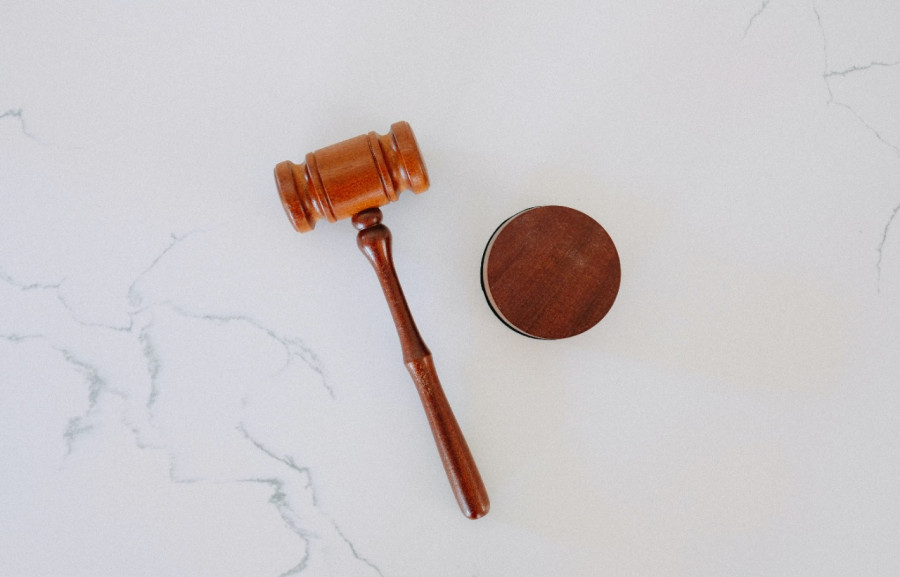Columns
Ideals of the rule of law
The laws of the nation must bear the fundamental ideals of justice.
Sambridh Ghimire
Rule of law is fundamentally defined as an instrument of societal control with the sovereign's approval. But the wise feel that such a definition is not holistic and leaves ample room for misuse. In this sense, the rule of law can be used to deliver justice and justify oppression. Philosophers have argued that no law can be classified to be law until it encompasses the ideals of justice, fairness and equity. A 'just law' and an 'unjust law' may not have the same moral and ethical legitimacy. Still, it may command society's adherence by being the law, although it might not be in the best interest of society. But the law, whether just or unjust, would have the sovereign’s backing. Nonetheless, any law must bear the fundamental ideals of justice. A state can be governed by law only when the law encompasses the basic tenets of justice.
The Shah Monarchy and the Rana Oligarchy used the law as an instrument of political repression. The rulers were always regarded above the law; the case of Praveen Gurung is a landmark of the same. The governance of these rulers resembled 'rule by law' rather than the rule of law. The democratic struggle of 1950, two Janandolans (people's movement) of 1990 & 2006 and a 10-year civil war all battled to establish a nation governed by the rule of law. But today, after 70 years of the democratic struggle, we are at a critical juncture. At this point, we must ask ourselves, are we being governed by the rule of law? To what extent have we used this to protect and ensure the welfare of our people. The current scenario has provided us with an opportunity to reflect and prepare for the future crossroads.
The fundamental concepts of the rule of law vary between various schools of jurisprudence. Regarding strict positivism, I would like to reflect on four principles that I think should be discussed in the present context. First, the law must be accessible and understandable. The people for whom the laws are made must at the very least know what the laws are. Therefore, the law should be transparent, and its information must be accessible to the common woman. Moreover, it should be drafted in a simple and uncomplicated language, commonly the lingua franca. The current issue of stark variations in the interpretation of the constitution is a direct result of the poorly drafted provisions, which have been interpreted not by intent but by convenience.
Second, equality before the law is an essential tenet of the rule of law. Equality here is a two-way street—equal laws for all and equal access to justice. The state cannot discriminate against citizens by enforcing unequal laws. In short, it is the delivery of justice to all constituents of the society, with particular attention to the vulnerable groups. Yet, in practice, citizens like Rupa Sunwar and Nawaraj BK, belonging to marginalised communities, still face unequal treatment by law and society. The third is the "right to participate in the creation and amendment of laws". A democratic state like ours should allow the citizens to make laws directly or indirectly that govern them. For example, Nepal has adopted the universal adult franchise to elect leaders by creating and enforcing laws through the legislature.
Panchayat apologists Mahendra Bir Bikram Shah and Tulsi Giri thought democracy could not fare in a nation with deep inequalities, illiteracy and backwardness. However, in the past seven democratically held elections, the people of Nepal have rejected the ruling power six times. They have registered their protest through the street and ballot. The people have done their part, and now it's upon the rulers to introspect whether they have been ruling up to the constitutional mandate.
The judiciary has long been regarded as Sentinel on the qui vive, i.e. the watchful guardian, which is the fourth principle—an independent judiciary. The judiciary is the only organ that interprets the constitution and adjudicates disputes arising thereof. It is mandated to declare acts ultra vires if not in line with the spirit of the constitution. The judiciary serves as a check on the powers of the other two organs by the instrument of judicial review of acts and laws. This power of the court is a fundamental part of the constitution. It should not be influenced by the other two organs—the executive and the legislative—as it is the most important safeguard for the rule of law.
The essential nature of the judiciary should not make it immune to maleficence or misfeasance. But it is not just the judiciary's responsibility to uphold the constitutional values and that the executive and legislative are equally responsible. But the transgression of the judiciary will always be the ultimate blow to the rule of law. Judicial checks and balances should be the last resort for any healthy democracy. The executive and the legislative ought not to let questions regarding fundamental values like the rule of law come under the judiciary's purview. But in the unlikely situation that it does happen, the judiciary must act with complete freedom and fairness to apply checks on government power. If any of the other two organs is controlling the judiciary, the rule of law becomes illusionary. Understandably, opportunities will present where the judiciary can collude with the government for some material interests, but it should refrain from engaging in such petty illusions.
The judiciary also has to be aware of the multidimensional pressure exerted on it by various other stakeholders, particularly members of the bar, government institutions, print and social media. For an unbiased judgment, the judges must not fall prey to narratives set forth by external forces. While the influence of the executive on the judiciary is a topic of regular debates, the persuasion and confusion caused by members of the bar and media remain unheard. Jurists should be aware that the worst wheel of the cart makes the most noise, and if you can't change it, just don't be overwhelmed by it.




 20.53°C Kathmandu
20.53°C Kathmandu















